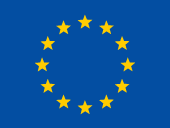Offering programmes in four key areas, European, language, IT and communication, and vocational, Wyższa Szkoła Ekonomiczno-Humanistyczna is well regarded for its high standards at undergraduate and graduate levels.

Bielsko-Biała (Poland)
4, Sikorskiego Street, 43-300 Bielsko-Biala, Poland
Tel. +48 33 816 51 69
Wyższa Szkoła Ekonomiczno-Humanistyczna was founded in 1997 by the Centre of business promotion under the name of undergraduate school of marketing and management. Following the development of the school and its expansion in terms of the new fields of studies on offer, the school changed its name to the undergraduate school of economics and humanities, followed by Wyższa Szkoła Ekonomiczno-Humansityczna (University of Economics and Humanities). A non-state institution, Wyższa Szkoła Ekonomiczno-Humanistyczna provides education at both the undergraduate and graduate degree level. Undergraduate students are awarded a 'licencjat' degree after completing 3 or 4 years of study. The degree serves as qualification in the field of the student's major and also enables students to continue their education towards a higher degree. Graduate students are awarded a 'Magister' degree after completing 1.5 or 2 year of study, and degrees serves as qualification in the field of the student's major and also enables the students to continue their education towards a doctoral degree.
Wyższa Szkoła Ekonomiczno-Humanistyczna offers educational programmes across several disciplines and our fields were drawn up in such a way that the school produces graduates who are sought-after professionals with a fluent knowledge of languages, who have practical computer and Internet skills and who possess good workplace skills and knowledge of work conditions in the European Union. The programme of studies is based on four modules: European, language, IT and communication, and vocational.
European module; European culture and society (A) - it prepares graduates for working in the environment of the European Union. The bloc of many subjects in the field of European Culture and Society gives students the opportunity to study history, geography and the principles of EU functioning.
Language module (B) - the program ensures practical education in all language skills, such as conversation, writing, reading and listening comprehension, practical grammar, pronunciation, etc. Classes are held in different language groups based on innovative and detailed teaching programs and modern methodology. Although the offical obligatory foreign language taught at the University is English, the teaching schedule also includes the study of additional foreign languages.
IT and communication module (C) – this is practical knowledge of computer systems operation, such as Windows and UNIX, as well as knowledge of the Internet, Intranet, etc. Teaching programs fulfill the requirements of the so-called European Computer Driving License (ECDL).
Vocational module (D) – it applies to the specialization chosen within the field and covers theoretical and practical career preparation. Programs fulfill the requirements of the Miniter of Science and Higher Education.

